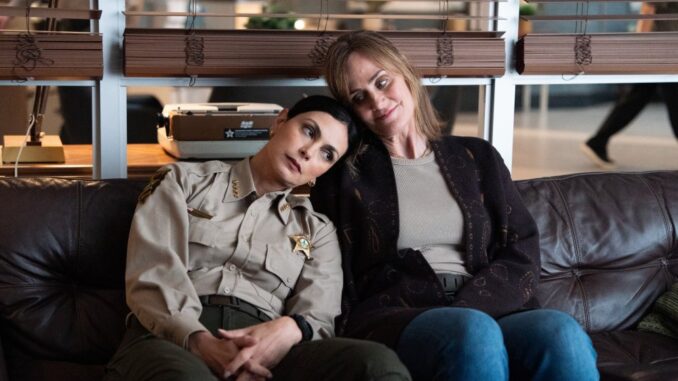
Beyond Napa: The Possibilities in the Wine Country Universe, According to Diane Farr
The dust has settled on the sun-drenched vineyards of “Wine Country.” The hilarious misadventures of the SNL alum’s characters, fueled by laughter, rosé, and a mid-life crisis or two, have become a beloved Netflix staple. But for fans yearning for more, the question lingers: is this all there is? Could this charming, albeit self-contained, narrative blossom into something more? Actress Diane Farr, who breathed life into the quietly insightful Catherine in the film, believes anything is possible. And the potential, fueled by the rich characters and the intoxicating backdrop, is undoubtedly intriguing.
One of the most compelling avenues for exploration lies in the idea of a “Wine Country” spinoff. While the original film focused on a specific group of friends, the world itself is ripe with narrative possibilities. Imagine a series that delves into the lives of the locals: the vintners battling changing climates and capricious markets, the farmworkers who are the backbone of the industry but often overlooked, or the younger generation grappling with the decision of whether to inherit the vineyards or forge their own paths elsewhere. This would shift the focus from the privileged perspective of the weekend visitors and offer a more nuanced, grounded perspective on the realities of life in wine country.
The picturesque setting, often used as a backdrop for lighthearted comedy in the film, could become a character in itself. Imagine a series that explores the cyclical nature of winemaking, from the pruning of the vines in winter to the bustling harvest season in autumn. Each episode could be structured around a different stage of the process, reflecting the challenges and triumphs of the people who dedicate their lives to creating the perfect bottle. This would not only provide a compelling narrative framework but also offer viewers a deeper appreciation for the artistry and dedication involved in the wine industry.
Beyond the vineyard, the potential for storylines is endless. Perhaps a romance blossoms between a visiting chef and a local sommelier, their cultural differences adding a layer of complexity to their connection. Or maybe a mystery unfolds, threatening the tranquility of the valley and forcing the locals to band together to protect their community. The very nature of wine country, with its influx of tourists and its deep-rooted traditions, provides fertile ground for stories that are both entertaining and thought-provoking.
Then, there’s the tantalizing prospect of a Sharon prequel. Maya Rudolph’s character, the ambitious and often exasperated Sharon, offers a particularly compelling backstory begging to be explored. Before the meticulously planned girls’ trip and the burgeoning crisis with her husband, who was Sharon? What were her hopes and dreams? A prequel could delve into her early career, her relationship with her best friends, and the events that shaped her into the woman we see in “Wine Country.”
This prequel could explore the pressures of balancing a demanding career with personal life, a struggle many women can relate to. We could see Sharon’s initial idealism slowly erode as she navigates the corporate world, facing sexism, microaggressions, and the constant pressure to prove herself. Her friendships would be the anchor in her life, providing solace and support as she navigates these challenges. Seeing the evolution of these relationships, the inside jokes and shared experiences that solidify their bond, would add a deeper layer of emotional resonance to the original film.
Diane Farr’s assertion that “anything’s possible” is not just wishful thinking; it’s a recognition of the inherent potential within the “Wine Country” universe. The characters are relatable, the setting is captivating, and the underlying themes of friendship, aging, and self-discovery resonate with a wide audience. Whether it’s a spinoff focusing on the lives of the locals or a prequel exploring the backstory of a beloved character, the possibilities are as diverse and nuanced as the wines produced in the valley.
Ultimately, the success of any potential “Wine Country” continuation will depend on maintaining the heart and humor that made the original film so endearing. It’s about celebrating the power of female friendships, embracing the imperfections of life, and finding joy in the simple moments. With the right creative vision, “Wine Country” could become more than just a single film; it could become a beloved franchise that continues to delight audiences for years to come, one glass of wine at a time. And with the spirit of Diane Farr’s optimism, the future of this franchise, like a fine wine, is just waiting to be uncorked.
